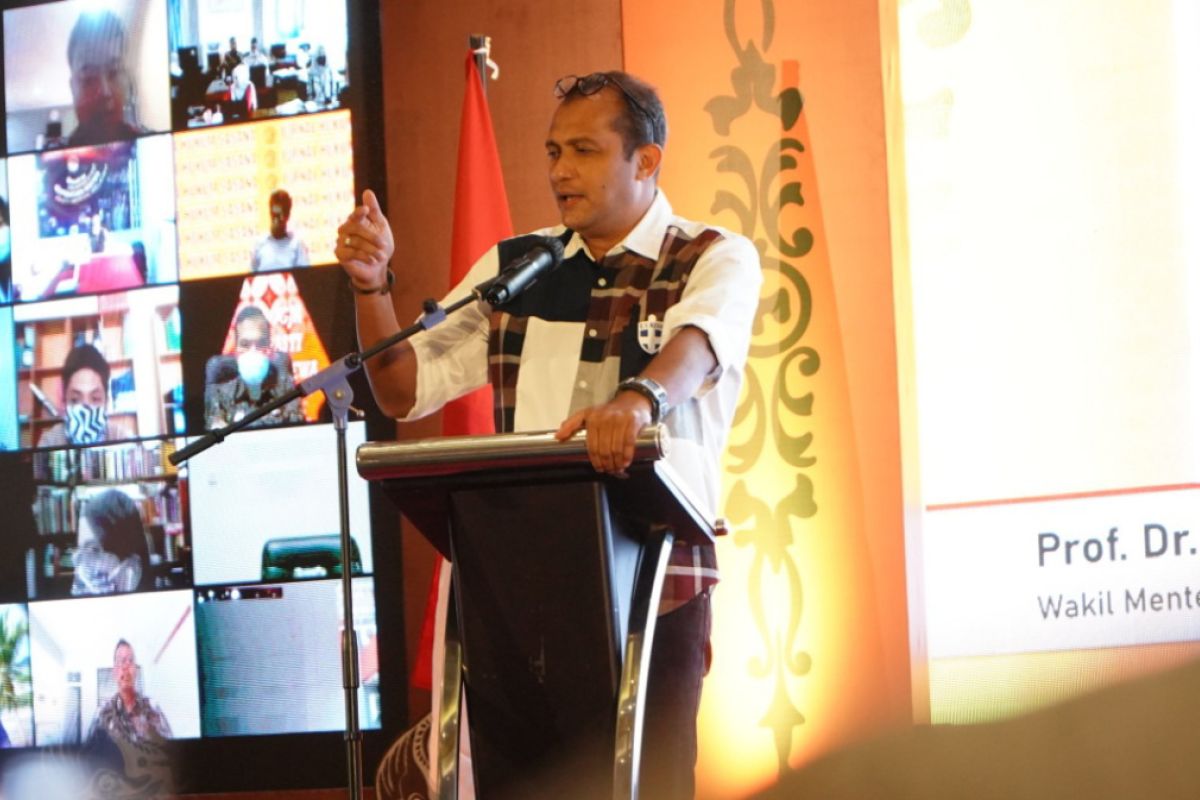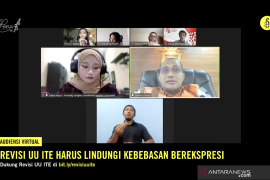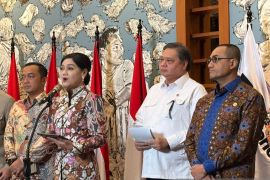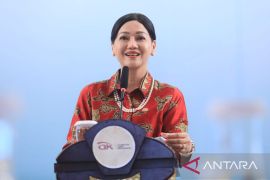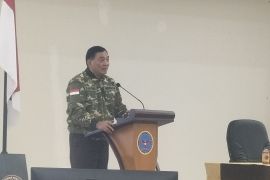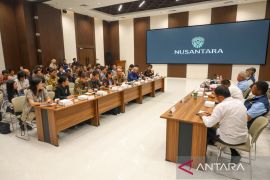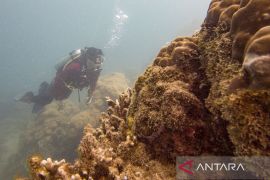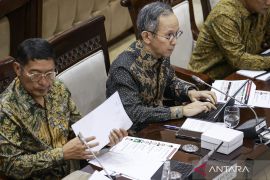"It is undeniable that the Article has caused worries. There have been interpretations or distortions between criticism and defamation, resulting in mutual reporting," Hiariej said in his opening remarks at a Public Discussion on the Law on Information and Electronic Transactions here on Thursday.
According to him, initially the ITE Law, Indonesia's Internet law, was aimed at preventing any actions that could harm others in cyberspace — from hacking to spreading hoaxes.
“So, this Law (ITE) is needed because activities in cyber space cannot be approached by conventional legal standards alone. If this is followed (using conventional law), many will pass and have difficulties in enforcing the law," he pointed out.
However, later on, the DPR RI (Indonesia's House of Representatives) added several provisions, notably Article 27, Article 28, and Article 29 into the ITE Law, with the aim of preventing other legal violations in cyberspace, which include slanders, insults, or defamation.
The three Articles, according to Hiariej, have multiple interpretations as they do not meet the main requirements in the legality principle, one of which states that there is no criminal act without a clear law.
"Are Articles 27, 28, and 28 clear? No, they are not clear," he remarked.
For instance, Article 27 Paragraph 3 of the ITE Law concerning defamation has often invited protests from various groups of society, he said.
"The argument that often arises is because the criteria and elements of the action are not clear and have multiple interpretations," he explained.
Therefore, he said he hoped that through the public discussion, experts, practitioners, or the public can participate in providing inputs to the study team, which has been tasked with formulating the implementation criteria for certain Articles in the ITE Law, which are considered to invite multiple interpretations.
The ITE Law, in principle, must be able to protect various legal interests to protect freedom of speech and express opinions, orally and in writing, he added.
In addition, the regulation must also protect the freedom to communicate and obtain information as constitutional rights of citizens, as stipulated in Article 28F of the 1945 Constitution of the Republic of Indonesia, and the basic rights to protection of the dignity and good name of others, protected under Article 28G paragraph (1) UUD NRI 1945, he said. (INE)
Related news: Deliberations on ITE Law revision must involve public: Press Council
Related news: Minister declares formation of team to review Indonesia's ITE Law
EDITED BY INE
Translator: Luqman Hakim, Fardah
Editor: Suharto
Copyright © ANTARA 2021
